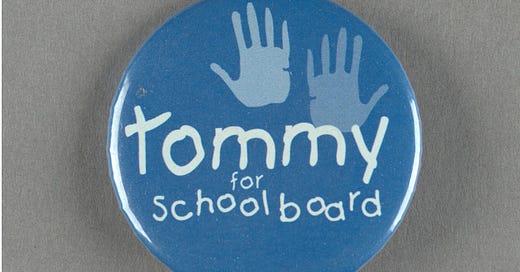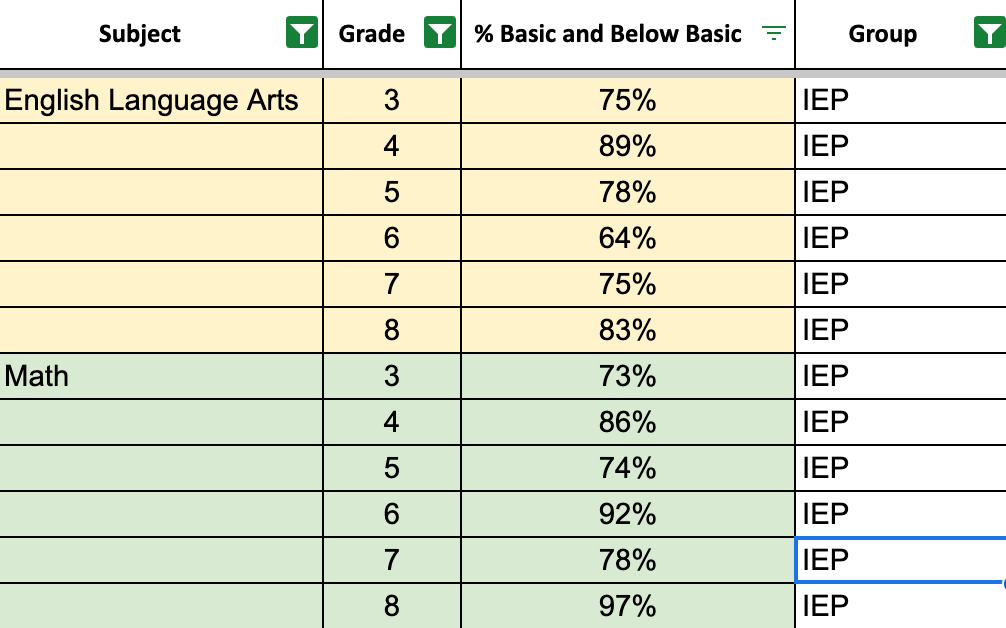Another Stupid School Board Story
A recent Wall Street Journal story about a local school board misses the point
A couple days ago the Wall Street Journal published an article with the headline, “The Small Town Tearing Itself Apart Over Preferred Pronouns.”
You can guess what the entire piece is about even without reading much beyond the sub-head (“Elizabethtown, Pa., has become a microcosm for America’s latest culture wars.”) and the requisite chiaroscuro photographs of parents or teachers standing solemnly in doorways that inevitably accompany stories like this.
Here it is in a nutshell anyway: the school board of a small town in Pennsylvania recently voted to ban transgender athletes from contact sports and require parental consent for name or pronoun changes for students. Some parents liked this. Some parents did not. Demonstrations and rancor have ensued.
That’s it.
This is a stupid story.
It’s stupid not simply because in this town of 12,000 people there are zero transgender athletes who play contact sports or because it is unclear how many transgender students will be affected by the pronoun rule (or how).
It is a stupid story because it feeds into the media narrative that our country is so riven with ideological partisanship that no place, no matter how quaint — not bakeries, not knitting circles, not little houses on the prairie, not the North Pole, not under the sea, and certainly not schools — is safe from the culture war.
It is also stupid because it contributes to this idea that school boards are strictly political entities composed of petty HOA types who watch too much cable news and are convinced they can save the soul of America one school board seat at a time.
The story has no interest in the bigger questions that the controversial votes present.
Such as, how much influence should school board members’ religious views have on their votes? (A number of board members belong to a local evangelical church, Lifegate, that is also active in local politics.)
Or, how much influence should outside groups exert on local school boards? (A controversial Christian law firm drafted the proposals the board voted on. They’ve worked with other school boards in Pennsylvania on similar issues.)
Or, how necessary is it for local school boards to change rules related to national, culture war issues when the number of students affected by them in their district is close to zero and when the school district is facing more pressing issues, such as, in Elizabethtown’s case, low student achievement?
The district’s results on the state tests that 11th graders take are not great. An enormous percentage of students with IEPs, and economically disadvantaged students, are not proficient in Algebra I, Biology and Literature. Almost half of all students aren’t proficient in Algebra I and Biology, and over one third are not proficient in literature.
The results on the state tests the students take in 3rd - 8th grade are not much better. Again, an enormous number of students with IEPs and who are economically disadvantaged are not proficient in English or math.

At least one third of all students are not proficient, and in some grades, it’s closer to half.
Elizabethtown is not a poor district, and it’s tiny—3,600 students. What explains these results? Are there staffing issues? Bad curricula? Is the superintendent up to the task? What about the principals? Are the districts finances in order?
The Wall Street Journal is uninterested.
Is the school board, too? We’re not told.
Without providing this information — it would have taken a paragraph or two; I found this data in 10 minutes — the story ennobles the school board’s pointless votes; robs the reader of a civics lesson in what school boards actually do (govern school districts and ensure students have access to excellent and equitable education); and contributes to the ever-growing body of stupid education stories about the endless “culture war.”
Schools and school boards are only political if we allow them to be.
Update 2/26/25: A clarification is needed on the above district data. I made those tables by pulling Elizabethtown’s data from the state website, filtering out negligible sub-groups (the district has tiny Asian, ELL, Black and Hispanic populations) and, for simplicity’s sake, adding Basic and Below Basic together. The state uses four performance levels: Below Basic, Basic, Proficient and Advanced. The descriptors are here.







I don’t think you defined what IEP means in the piece.